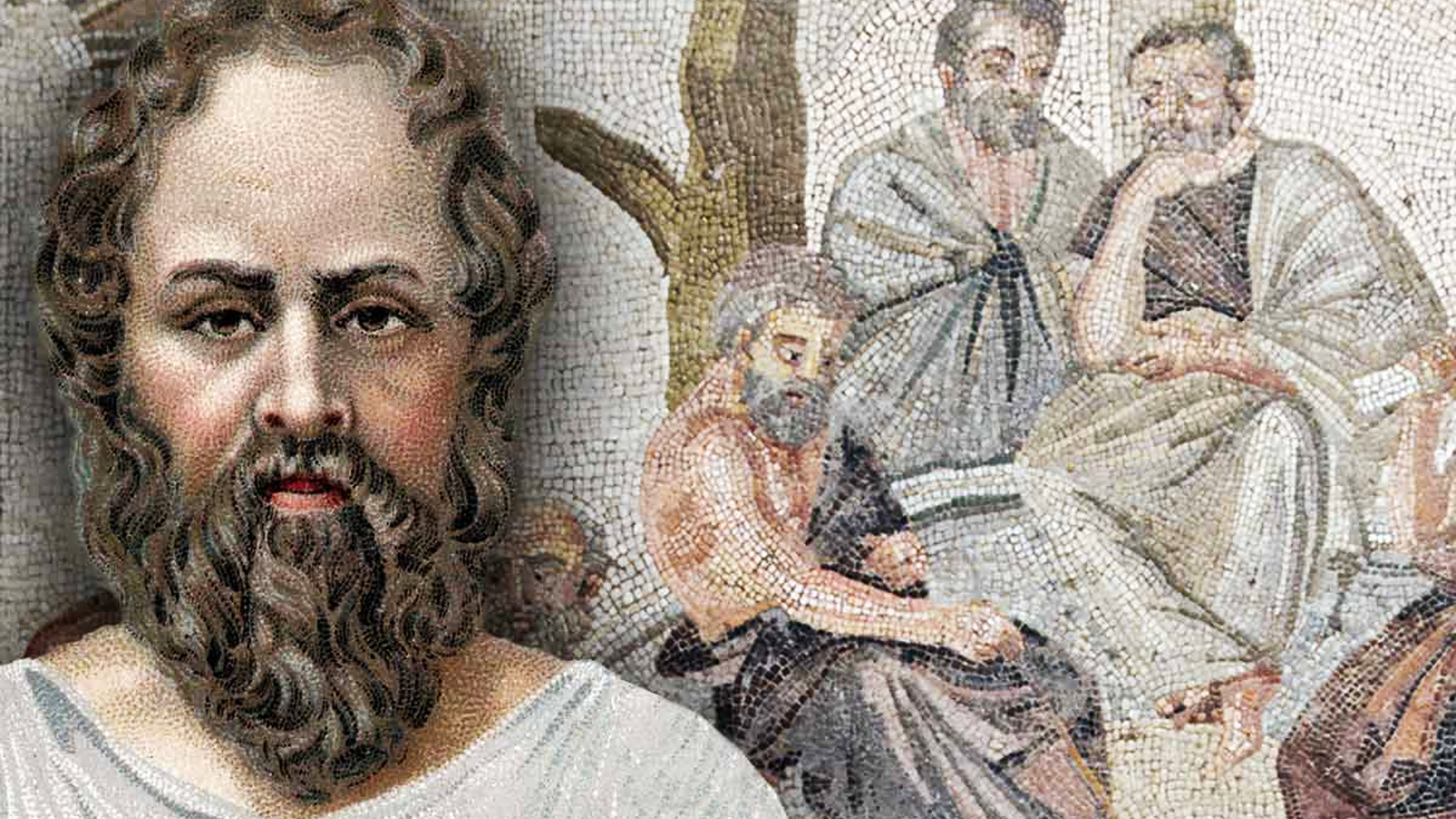Socrates

A classical depiction of Socrates in deep conversation, representing his method of teaching through questioning.
Biography
Socrates was born around 469 B.C.E. in Athens, Greece, during the city’s golden age. His father was a stonemason and his mother a midwife, but young Socrates’ real passion was for learning. He read widely, studied with great thinkers like Anaxagoras, and learned rhetoric from Aspasia, a famed intellectual connected to Athenian leader Pericles.
Before he became a philosopher, Socrates served bravely as a hoplite (foot soldier) in the Peloponnesian War, showing remarkable courage and endurance. But his true battlefield was the public square, where he asked question after question—not to shame people, but to help them think more clearly. This became known as the Socratic method, a way of guiding others to discover truth by challenging assumptions.
Socrates believed wisdom began with admitting one’s own ignorance. When the Oracle at Delphi declared him the wisest man in Athens, he realized it was because he alone recognized how little he truly knew. He valued virtue over wealth or fame, and he lived simply, often going barefoot, unkempt, and uninterested in material possessions.
While many young Athenians admired him, Socrates made powerful enemies. His constant questioning of authority and traditional beliefs—including his habit of speaking about one God rather than the many gods of Athens—disturbed the city’s leaders. He also refused to participate in unjust political actions, famously disobeying orders to arrest an innocent man.
In 399 B.C.E., Socrates was put on trial for 'corrupting the youth' and 'failing to honor the gods.' He defended himself with courage, declaring, 'The unexamined life is not worth living.' He could have gone into exile, but he chose to stay and face the penalty. Surrounded by friends, he calmly drank a cup of poisonous hemlock and died without fear.
Socrates never wrote his ideas down, so what we know of him comes from his students—especially Plato and Xenophon. His commitment to truth, his fearless integrity, and his belief that questioning leads to wisdom laid the foundation for Western philosophy. More than 2,400 years later, his method and message still shape how we learn, debate, and search for meaning.
Socrates didn’t just teach philosophy—he redefined it. By turning the focus from studying the world to examining ourselves, he gave us the tools to think critically about our values, choices, and beliefs. He showed that truth isn’t handed down by authority—it’s discovered through questioning and dialogue. His refusal to betray his principles, even under threat of death, set a timeless example of integrity and moral courage. In a world where it’s easy to accept simple answers, Socrates reminds us that the most important work we can do is to keep asking, keep thinking, and keep striving to live a life worth examining.
?
What makes the Socratic method such a powerful way to learn?
Why do you think questioning authority made Socrates so unpopular with leaders?
How might admitting your own ignorance actually make you wiser?
In what ways is civil disobedience still relevant today?
What does Socrates’ life teach us about the connection between integrity and courage?
Dig Deeper
Follow the lives and philosophies of Socrates and Plato, exploring how their critical questioning changed human thought forever.
Learn about the Socratic Method and how it uses questions to examine values, principles, and beliefs.
Explore Socrates’ deep skepticism of democracy and why he questioned its effectiveness.
Discover more

Henry David Thoreau
Henry David Thoreau was a writer, philosopher, and naturalist who believed that a good life requires conscience, simplicity, and a deep relationship with nature.

Mohandas Gandhi
Mohandas Gandhi led India’s fight for independence through a radical commitment to nonviolence and truth.

John Brown
John Brown was a radical abolitionist who believed that slavery would never end unless confronted with violence.
Further Reading
Stay curious!
